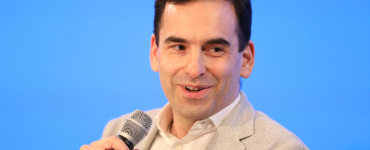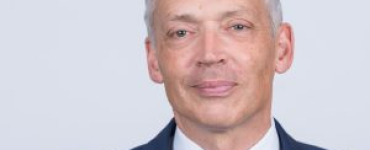Since July 2024, Juan Hahn, CEO and founder of HAHN Network, along with Andreas Hinterberger, Senior Manager Governmental Relations and Public Policy Country Lead Germany, Switzerland and Austria at Uber, has been leading the Mobility Competence Group at the eco Association. We spoke with him about his personal mobility behaviour, the opportunities and challenges of mobility in the future and his goals as the new Head of the Mobility Competence Group at the eco Association.
What about your personal mobility behaviour: How do you usually get to work or to external professional appointments?
Juan Hahn: On foot. I have set up my office at home. I usually only drive to workshops or when I’m giving a keynote speech. Depending on the logistics, I either use a car or the train.
Has the mobility of the future already arrived in Germany? Where do we currently stand?
Juan Hahn: It’s difficult to give a generalised answer to this question. What is the mobility of the future? And more importantly, whose mobility? The requirements for mobility are very diverse, depending on individual circumstances such as place of residence, family, job, etc. In general, we are on a promising path, but there is still a lot to do. Germany has made significant progress in recent years, especially in the field of electromobility and the digitalisation of transport. However, we still face challenges such as the nationwide charging infrastructure and the integration of smart mobility solutions into everyday life.
What opportunities and challenges does the digital transformation present for the mobility sector?
Juan Hahn: The digital transformation opens up immense opportunities for the mobility sector. More efficient traffic control, new mobility services and greater connectivity of transport modes can make mobility more sustainable and user-friendly. However, there are challenges in Data Security, the interoperability of different systems and the public acceptance of new technologies.
In your opinion, what measures and incentives are needed to accelerate the mobility transition?
Juan Hahn: Various measures are necessary to accelerate the mobility transition. These include investment in infrastructure, particularly in charging and hydrogen refuelling stations, as well as the promotion of research and development in the field of new drive technologies. Equally important are political framework conditions that support innovation and make the use of environmentally friendly means of transport attractive. There are many pioneering offers in the urban area today. We need to work on making them cheaper and more convenient in order to increase the incentive for their use. It must be a market-driven process in which patience and understanding of the respective iteration stages are important. As mentioned earlier, the requirements and framework conditions are very different, and it is only fair to give developments time. We should be cool-headed and free of emotion when assessing what, when and where makes sense and what does not. Decisions must be transparent and data-driven, especially when taxpayers’ money is being used. In the context of subsidies, all vehicle types must be considered equally. To act fairly and inclusively, someone who says charging infrastructure must also say cycle path.
You have extensive experience in the digital transformation of the automotive sector. What are the most important lessons you have learnt from pilot projects on connected mobility, and how can these insights be incorporated into future initiatives?
Juan Hahn: One of the most important lessons is the need for close collaboration between different stakeholders – from car manufacturers to technology companies and public institutions. Pilot projects have shown that interoperability and standardised interfaces are crucial for the success of connected mobility. We will incorporate these findings into future initiatives by focussing on open platforms and collaborations to ensure the scalability and acceptance of new solutions. I am very confident that the eco Association and in particular, the Mobility Competence Group are setting the right framework for these challenges.
What topics would you personally like to drive forward as the new Head of the Mobility Competence Group at the eco Association?
Juan Hahn: I would particularly like to drive forward the topics of sustainability, digitalisation and networking in the mobility sector. This includes promoting environmentally friendly technologies, supporting smart mobility solutions and strengthening cooperation between different stakeholders. Another important concern is raising public awareness of the opportunities presented by the mobility transition and developing practical solutions. In both automotive retail and the aftermarket, we at HAHN Network have the most relevant stakeholders in our network to tackle more complex challenges. In doing so, we focus on AI-driven use cases, systematically examining market acceptance and the scalability of new business models. It is an honour to take the lead together with Andreas and his perspective from the UBER ecosystem.”
Thank you very much for the interview, Mr Hahn.
Juan Hahn, along with his network, supports the automotive industry in digital transformation, offering consulting in partner and business development. He also regularly gives keynotes on artificial intelligence in automotive retail and the aftermarket. His journey in the automotive industry began 20 years ago. In 2007, he founded his first automotive agency, followed by his first digital start-up in 2011 with the world’s first vehicle portal for leasing, financing and long-term rental. In 2014, he sold the platform to Verivox to support the company as a Senior Consultant for the following two years. He has remained committed to consulting to this day. His clients are primarily platforms, software manufacturers and stakeholders in the automotive industry. He has been involved in the Gaia-X research project, Car Repair 4.0, funded by the German Federal Ministry for Economic Affairs and Climate Action (BMWK), since the application phase.
Find out more about the eco Mobility Competence Group




